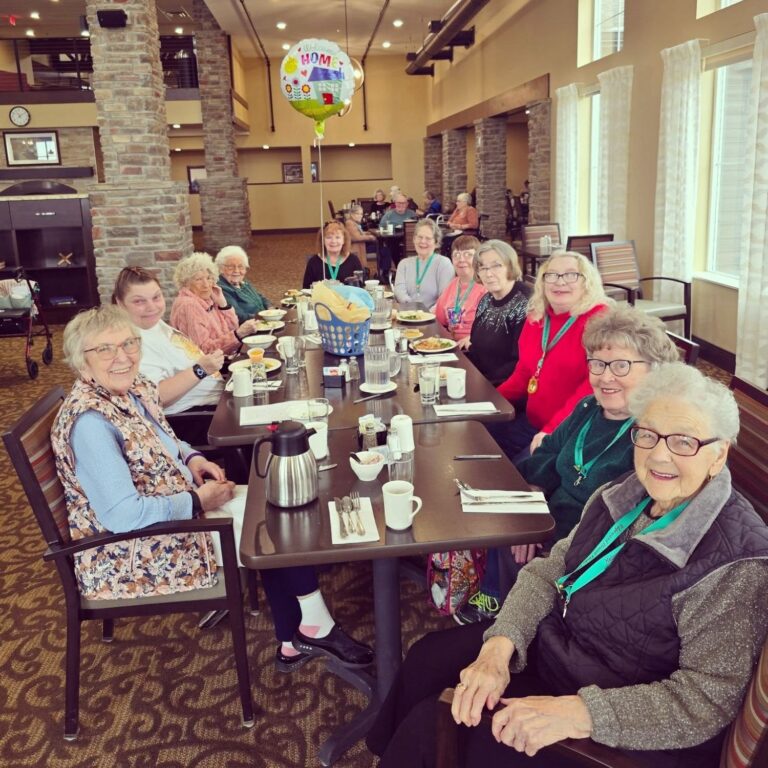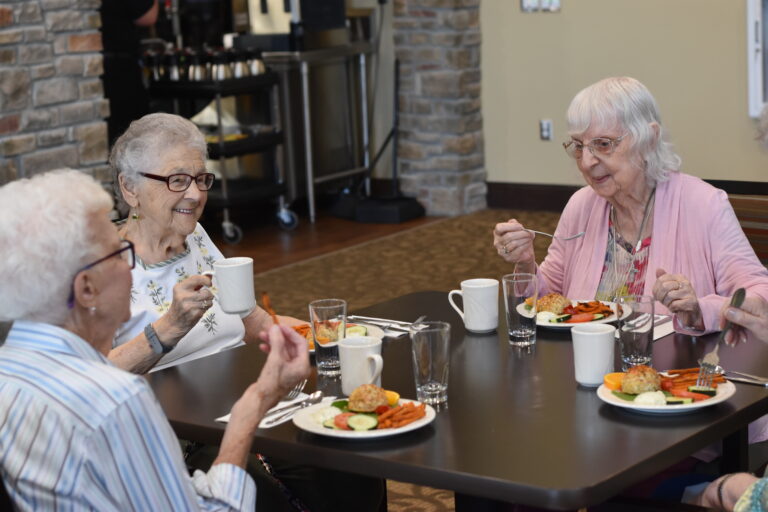
For residents with Alzheimer’s disease, the key to comfort may be musical. While drug companies continue to test for treatments that slow this disease’s progression, other researchers are looking beyond the lab for help.
One recent study out of George Mason University followed 45 adults struggling with Alzheimer’s disease and dementia. Researchers encouraged frequent singing of popular, familiar songs. Over four months, as the group enjoyed its music, the study confirmed a sharp cognitive boost in each of the participants.
Find Senior Living Near Me
“Twenty-one drugs to treat Alzheimer’s have failed in the last nine years. I believe they will eventually find the right drug. In the meantime, these non-pharmaceutical approaches are helpful,” Jane Flinn, a behavioral neuroscientist and co-author of the study, told AARP.
For decades, music therapists have been coaxing Alzheimer’s patients out of their shells with tunes that remind them of their earlier days. For many, music has been grounding, giving them an experience that is familiar and helps them feel safe, calm, and comforted. By regularly exposing their patients to songs, music therapists find the adults in their care are more engaged, socialize with greater ease, and generally experience better moods. In extreme cases, therapists have reported music enlivening their patients, even inspiring long nonverbal adults to begin speaking again. Music has been such a boon to the community that it’s even reduced the need for antipsychotic drugs for treatment.
Why Music Matters
One reason researchers believe songs have been key to treatment is that musical aptitude is one of a patient’s longest-lasting abilities.
“Music has reduced the need for antipsychotic drugs for treatment.”
In a statement to The Independent, the United Kingdom’s Alzheimer’s Society said it encourages singing sessions for those battling the disease. “Even when many memories are hard to retrieve, music can sometimes still be recalled, if only for a short while,” said a spokesperson for the organization. “The sessions help people with dementia communicate, improving their mood and leaving them feeling good about themselves.”
A second theory for why music matters? Songs stir emotions, moving even late-stage Alzheimer’s patients to feel something. Neurologist and bestselling author Oliver Sacks wrote in ”Musicophilia” that “Music evokes emotion, and emotion can bring with it memory. It brings back the feeling of life when nothing else can.” Sacks recommends caregivers play and sing familiar tunes while going about routines with those in their care. Tying a song to an activity may help residents remember their routines and slowly boost cognition.
Cognitive response aside, singing sessions can help improve a resident’s mood. The results of music therapy are so outstanding that the Alzheimer’s Foundation of America states, “When used appropriately, music can shift mood, manage stress-induced agitation, stimulate positive interactions, facilitate cognitive function, and coordinate motor movements.”
Currently, Alzheimer’s disease affects more than 5 million adults in the United States – and what’s worse, there’s no cure. This disease chips away at the quality of life for both residents and caregivers. But music and song now offer great hope for disease management. Researchers, physicians, and medical organizations around the world are embracing the healing power of music. If you have a loved one struggling with Alzheimer’s or dementia, talk to their healthcare provider about music therapy to reduce stress, offer comfort, and improve mental acuity.




